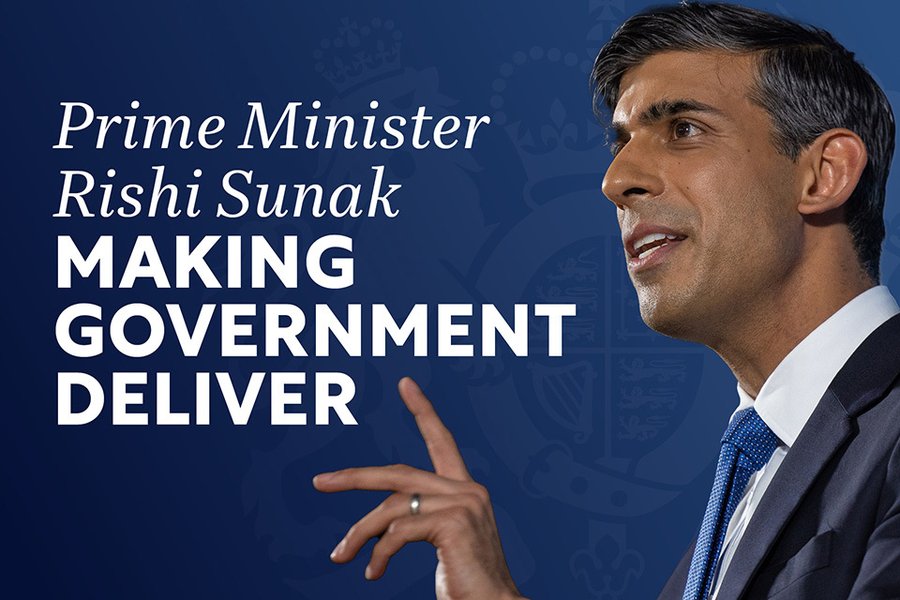
Just as the political environment showed signs of stabilising it’s all change again.
For some considerable time, INCA have enjoyed a healthy and ever developing relationship with BEIS, the Department for Business Energy and Industrial Strategy – but yesterday morning (Tuesday 7th Feb 2023) Prime Minister Rishi Sunak confirmed his decision to take the E out of BEIS and create a new Department for Energy Security and Net-Zero dedicated to all thing’s energy related.
On top of that, although perhaps not relevant to our own industry, he has also merged parts of BEIS focus on business into a merged Department for Business and Trade and other parts into another new department, the Department for Science, Innovation and Technology.
How will this affect the work that INCA do and the external wall insulation industry as a whole? Up to now we mainly associate BEIS with the energy efficiency retrofit market with a high focus on the domestic sector. They drove the legislation, the funding incentives, set out the preferred energy efficiency measures, specifications, quality control – even training and the skills shortage. But their level of influence spreads across all market sectors – commercial, new build, MMC etc. So they were absolutely key to our industry and the energy efficiency we bring to the built environment.
Working closely with them gave us the opportunity to be heard and to influence which is why we spend time on developing a close, collaborative partnership with them – both directly as INCA and through our combined partnerships with the wider energy efficiency industry. Whilst initially there is obviously going to be uncertainty with regards to who we remain / become the persons of key influence but, longer term, when the dust has settled, a department focussed solely on energy and the commitment on the drive to Net Zero has the potential to be highly beneficial. We are hoping, and expect, that many of the current key stakeholders at BEIS will remain in similar position within the new department but all will become clear over the coming weeks.

The New Department for Energy Security and Net Zero
In the Governments own words:
The Department for Energy Security and Net Zero will provide dedicated leadership focused on delivering security of energy supply, ensuring properly functioning markets, greater energy efficiency and seizing the opportunities of net zero to lead the world in new green industries.
This year, the department will focus on easing the cost of living and delivering financial security by bringing down energy bills and keeping them down – better insulating consumers from external impacts. Longer term objectives include ensuring properly functioning energy markets, coordinating net zero objectives across government and bringing external delivery expertise to bear on its portfolio of major projects.
The Department for Energy Security and Net Zero is focused on the energy portfolio from the former Department for Business, Energy and Industrial Strategy (BEIS).
Whilst we’re yet to established exactly how this new department will be structured what we do know so far is that it will be headed up by Grant Shapps, who was appointed as Secretary of State at BEIS by the new PM last October so there’s at least likely to be some degree of continuity.
Mr Shapps commented as follows:
Delighted to become the first Secretary of State for the new Department for Energy Security & Net Zero. My focus will be securing our long-term energy supply, bringing down bills and thereby helping to halve inflation.
We’re also beginning to get an idea of the junior teams and will update when we have the full picture.
Why The Reorganisation
So why this significant reorganisation and at this stage? Perhaps we shouldn’t be surprised as this was something that Rishi Sunak committed to as part of his first Tory Party leadership campaign.
We’d also like to think that perhaps “Mission Zero”, the Net-Zero Review recently published by Chris Skidmore MP, had a bearing on his decision. This review, makes 129 recommendations covering areas including the greater role that business can be supported to play, making better use of infrastructure and delivering more energy efficient homes. Every one is designed to maximise economic investment, opportunities and jobs – all while working towards achieving legally binding targets to reach net zero carbon emissions by 2050.
In the report Mr Skidmore urges ministers to grasp the ‘historic opportunity’, highlighting how the government’s Net Zero Strategy offers the right direction, and the right policies to do so.
It did however conclude that the UK Government’s current approach is neither sufficient to deliver steep enough emissions cuts and not laid out well to reap and share the social and economic benefits of the transition so perhaps this did have a level of influence.
The Prime Minister has also faced mounting pressure to do more and act faster in relation to energy security and efficiency amidst the current crisis. These calls have hailed from influential bodies such as the Confederation of British Industry (CBI), the Energy and Climate Intelligence Unit (ECIU) along with trade bodies representing the energy efficiency industry as a whole – including INCA of course.
The PM himself explained the reasoning behind the changes as follows:
I began this year by promising the British people I was going to change the way this country works. But we can only do that if we change the way our system works.
That’s why yesterday, we did just that.
We’ve seen the impact of Putin’s illegal war in Ukraine has had on prices. We know the importance of ensuring we have a greener, cleaner energy supply for the future. It’s because of this that we have created the Department for Energy Security and Net Zero. This department will focus on giving the UK cheaper, cleaner, more secure sources of energy – cutting bills, cutting emissions, and cutting our dependence on international energy supplies, like those of Putin’s Russia.
But we also need to think ahead, securing the technology and jobs of the future that will grow our economy. The newly created Department for Science, Innovation and Technology will do just that – making sure the UK is the country where the next great scientific discoveries are made. We want this country to be the place where the brightest minds and the most ambitious entrepreneurs will turn ideas into companies, products, and services that can change the world.
Nowhere can you find more dynamism, more innovation, than in business. The Department for Business and Trade – the single, coherent voice for business inside government will give focus to growing the economy with better regulation, new trade deals abroad, and a renewed culture of enterprise at home.
Talking of culture, we’re refocusing the new Department for Culture, Media and Sport – ensuring it is at the very heart of supporting and celebrating the immeasurable richness those sectors bring to our national life – this year, and every year.
That’s the future: Greater focus, dedicated leadership, and better-targeted resources will drive forward work to halve inflation, ease the cost of living, transform our public services and create growth and opportunity through innovation.
We’re focused on delivering for you.
INCA Opinion
On the face of it INCA welcomes the news – a department with a sole remit to deliver on net zero has the potential to be far more effective that the more diverse remit of BEIS. On paper it feels like a major step in the right direction especially when considering some of the historical frustrations our industry has faced in relation to funding and initiatives.
For now we’re working with our industry partners at the Energy Efficiency Infrastructure Group and the British Energy Efficiency Federation to congratulate and welcome the new incumbents whilst we establish exactly how things will be structured, who will be the key players in relation to our industry (many of whom will likely stay the same) and where our main focus needs to be in order to be able to influence and support the top level decision-making process on the issues and funding streams which impact the external wall insulation industry across all sectors.
We’ll keep you informed …
